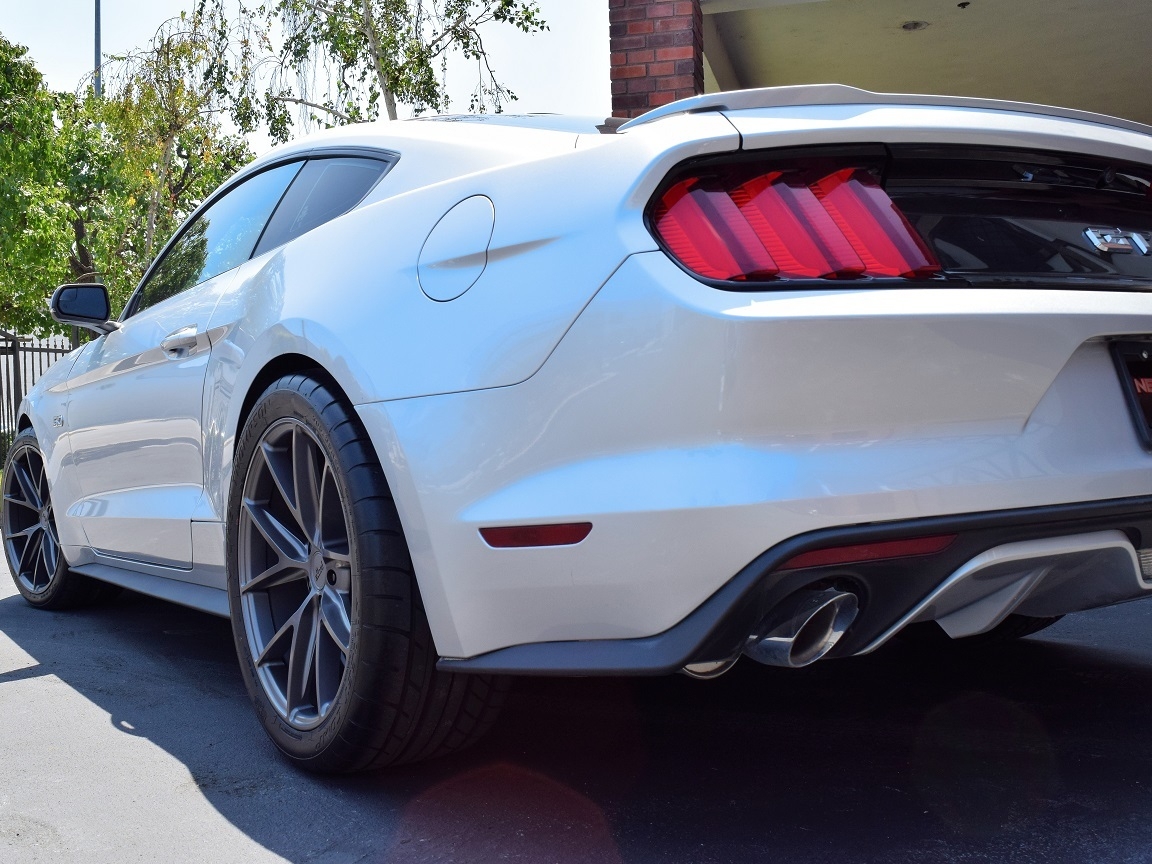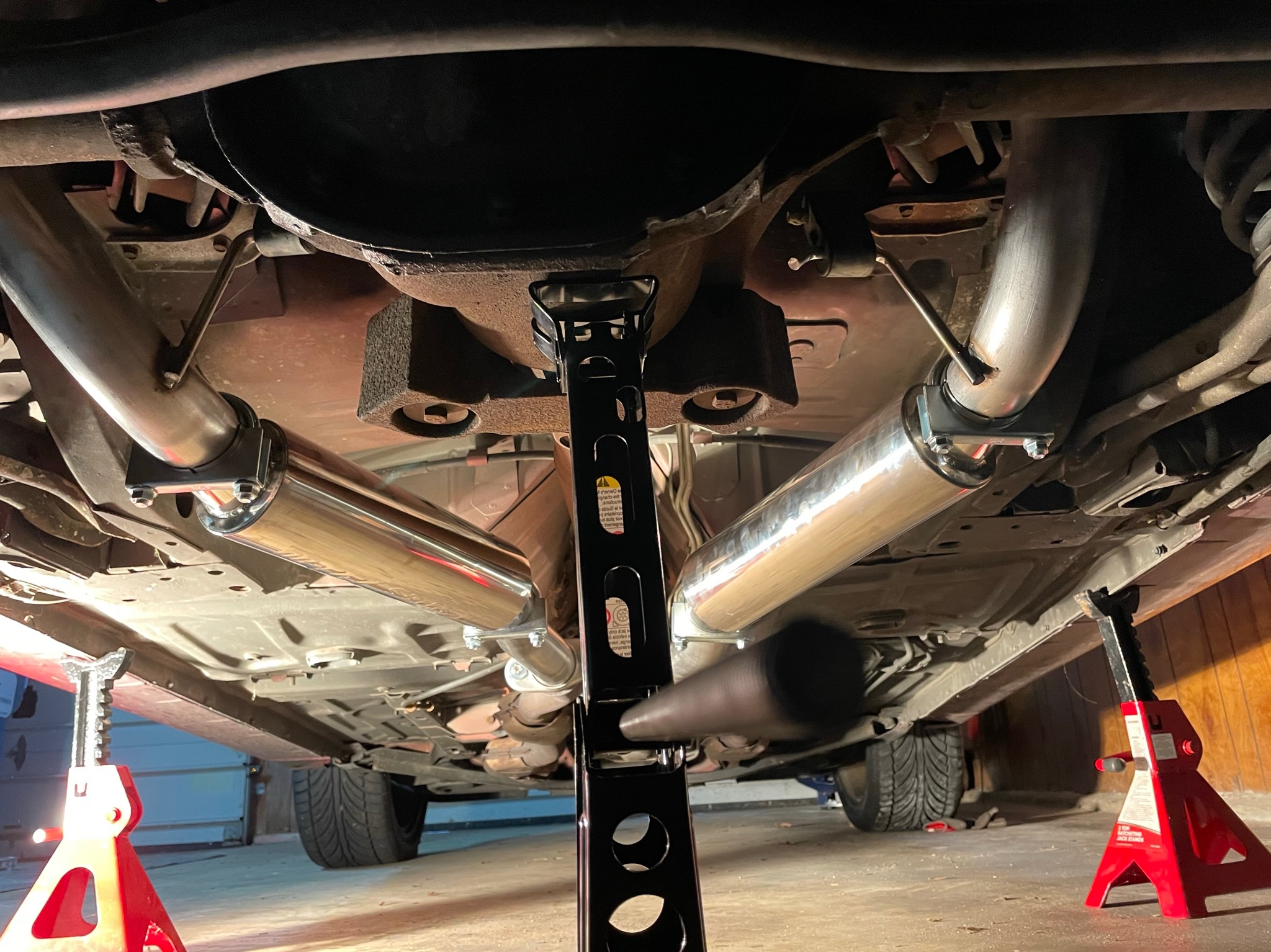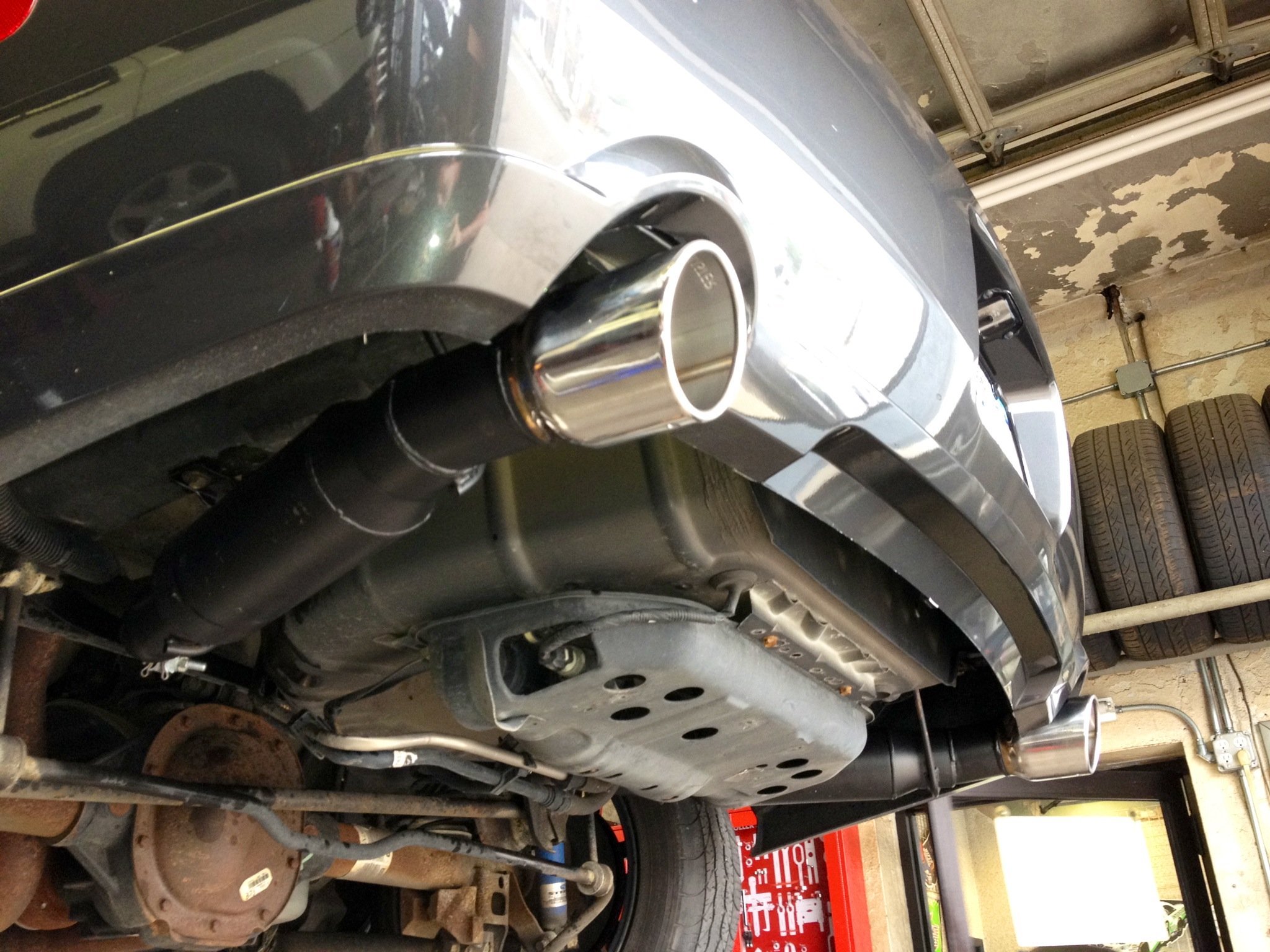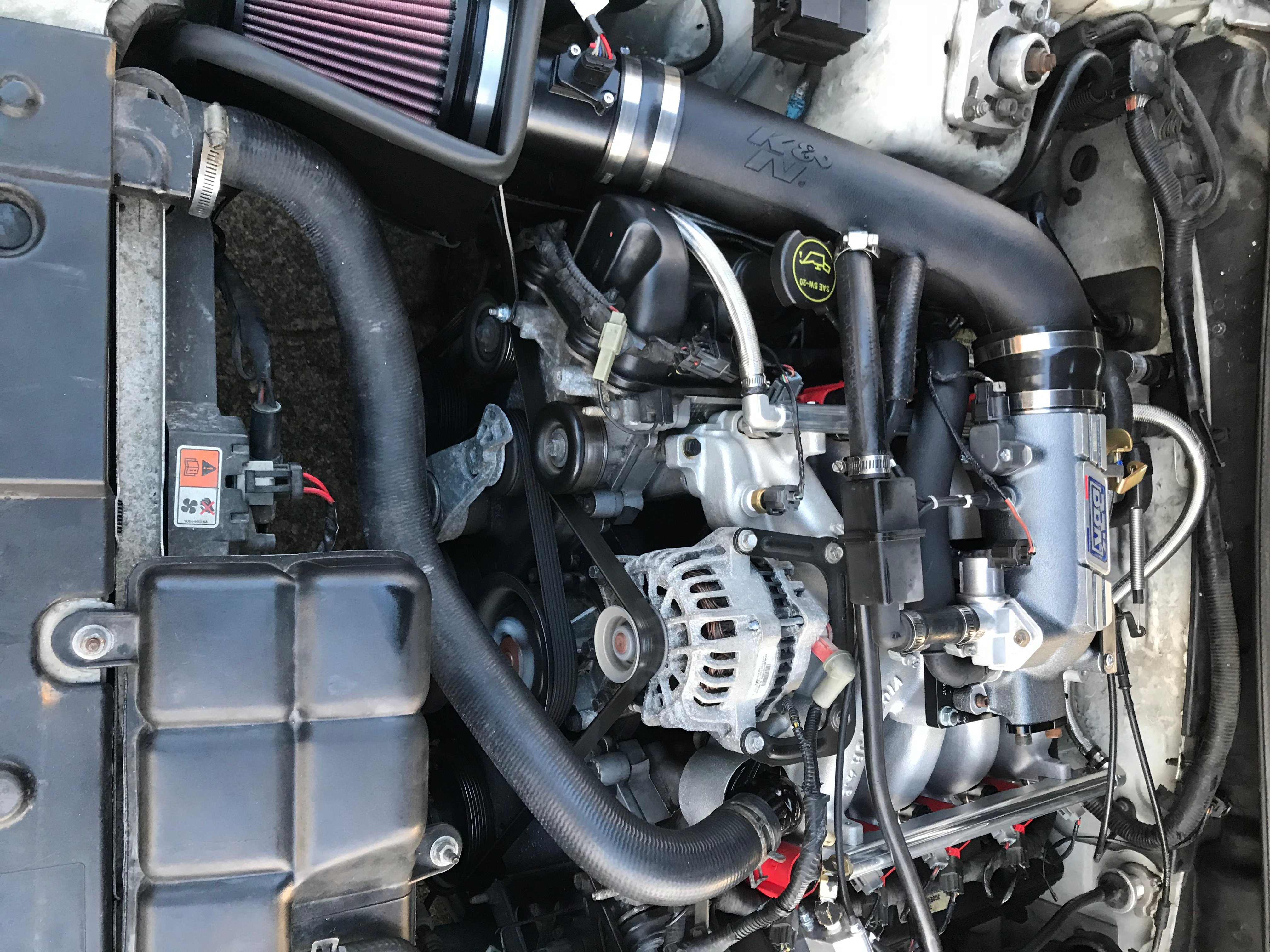
What does your exhaust system have to do with fuel efficiency? Isn’t that the job of the engine, after all? Well, you’d be surprised to know that your exhaust system can, in fact, have an effect on fuel economy – good or bad. In this article, we’ll briefly explain what the exhaust system’s purpose is, and talk about the aftermarket exhaust system that many gearheads gravitate towards. Then, we’ll see how fuel efficiency and exhaust systems are intrinsically linked and help you find the best aftermarket exhaust systems.
What Does the Exhaust System Do?
Your engine combines air and fuel to make power, heat, and noise. That’s the simplest way to explain internal combustion. Once the mix of air and fuel has done its thing, it must be evacuated from each cylinder so that the next ‘shot’ can be fired. This evacuation is handled by exhaust system, from the moment that the exhaust valves open and the piston pushes out the spent gasses.

The exhaust system comprises the exhaust manifold or headers, which may combine the output from multiple cylinders into a single or dual pipes. Then, you’ve got the catalytic converter which scrubs or neutralizes harmful substances from your exhaust gases. Finally, the gases flow into the muffler (or mufflers), which do what they say; muffle the loud roar of these gases into something quieter, something that’s not likely to set babies crying within a five-mile radius of your car. Finally, the gases exit into the atmosphere via the tailpipe, which may contain one or more decorative exhaust tips to enhance the look of your vehicle. Contrary to popular belief, exhaust tips themselves do not increase actual performance; they only cause a psychological perception of performance benefit.
What Is an Aftermarket Exhaust System?
Manufacturer-fitted exhaust systems are designed to be as quiet as possible, because most people don’t want their car to be heard all the time. They prefer to enjoy moments of silence, or their musical preference as they drive along. Hence, these systems aren’t designed for maximum performance or aural delights. Curiously, they may not offer the best fuel economy either. That’s because to make an exhaust quieter, you’ve got to restrict the flow of the gases as much as possible. This is what the muffler does. A stock muffler contains many baffles, constricted pathways, and other elements to slow down the gases as much as possible.

Meanwhile, an aftermarket exhaust system trades off some (or all) of the quietness for performance, depending on your preference. Aftermarket exhaust systems can also be made incredibly quiet, but not as quiet as a standard manufacturer exhaust because then you’d be, well, no better than stock!
How Does an Aftermarket Exhaust System Affect Fuel Efficiency?
Let us start by saying that a poorly designed or mismatched aftermarket exhaust system will reduce your fuel economy for many reasons. It might move your engine’s torque band to a higher rev range, requiring you to rev the engine more in daily driving. Or, it might cause a drastic torque drop, once again requiring you to continually drive in lower gears at higher rev bands. This will make your vehicle very tiresome to drive and may get you in trouble with the law.
Meanwhile, a well-designed and well-matched aftermarket exhaust system can improve your fuel efficiency during regular driving. The main reason why this happens is because of the increase in power and torque that an aftermarket exhaust system can provide when combined with the requisite upgrades to the intake side of the engine, as well as ECU or carb tuning if required. Here, the torque band may be broadened, increasing the torque peak. Hence, you won’t need to step on the gas as hard as before when driving in town and on the highway.

However, many people complain that fuel efficiency has dropped after installing a proper aftermarket exhaust system. The reason for this may be something as simple as driving style — who can be blamed for wanting to hear their car’s new soundtrack at every opportunity? If you did the same with your stock exhaust system in place, you’d also see a corresponding reduction in fuel economy.
So, if you’ve spent a lot of time and money on a well-matched, professionally designed aftermarket exhaust system and are experiencing a drop in fuel economy, first ask yourself if you’ve changed your driving style in order to hear your car’s awesome new voice at every opportunity.
Where Can I Find an Aftermarket Exhaust System?
Right here with American Muscle, of course. We’ve got a range of great brands, including aFe, Borla, Flowmaster, and Pypes. Talk to our sales techs and they’ll help you select the most suitable one for your ride.
Since 2003, AmericanMuscle has been the go-to place for enthusiasts and racers alike who seek their regular performance fix. We’ve got a wide array of high-quality components from the world’s best brands, waiting for you. Then, we’ll be on hand to help you make the right choices, as well as provide world-class after-sales support.






